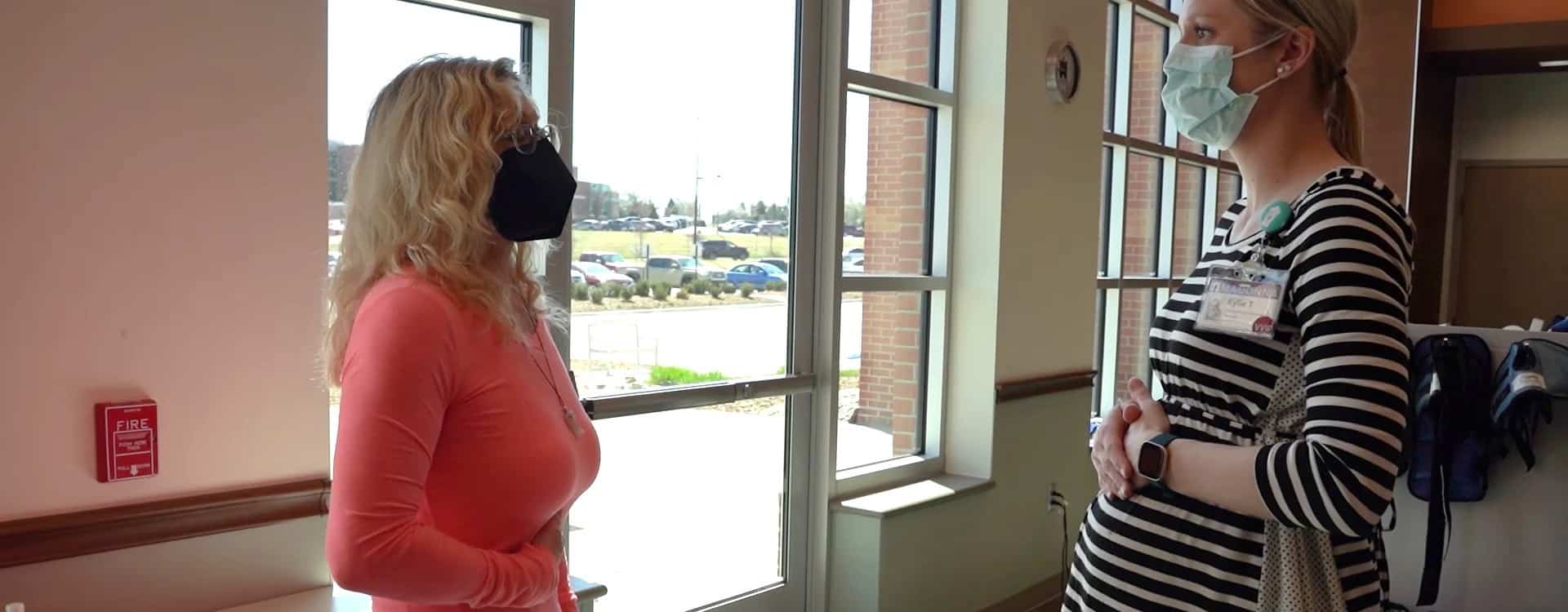Many people who have had COVID-19 experience symptoms—such as “brain fog,” breathlessness, fatigue, racing heart rate, anxiety and depression—for months after the initial infection. For those affected by long COVID, the search for answers can be complicated. That’s largely because post-COVID conditions vary from individual to individual, and for some, it can be difficult to know when or where to seek treatment.
Fortunately, Madonna Rehabilitation Hospitals has been a national leader in post-COVID-19 rehabilitation care. Throughout the pandemic, our team of specialized health care experts has treated hundreds of individuals with post-COVID-19 complications, collaborated with researchers nationwide to advance clinical guidelines for post-COVID-19 rehabilitation care, and even launched an interdisciplinary, outpatient post-COVID-19 rehabilitation clinic.
“For the people that come into this clinic, we have an evaluation process that includes physical therapy, occupational therapy and speech therapy,” Dr. Samuel Bierner, Madonna’s medical director of acute rehabilitation on the Omaha Campus, said. “Some persons who have symptoms after COVID can have problems involving their heart, so the more urgent things we’re concerned about is to make sure you don’t have abnormal lung function or you’re having cardiac dysfunction which can manifest by electrocardiogram or sometimes by MRI of the heart. Many people may not have symptoms that manifest as significant abnormalities on those types of tests, but they’re still having a lot of symptoms that are bothersome to them and are interfering with their daily activities.”
Allison Carson, a speech therapist working with post-COVID patients at Madonna’s clinic, has seen firsthand how medical rehabilitation for this population has changed lives.
“I’ve been doing a quality of life scale with each of my post-COVID patients both at admission and then at discharge,” Carson said. “I think it’s really important because it helps show these patients that what they’re feeling is valid, and that these simple tasks that they’re used to completing are taking much more energy or stress [than they realized]. It’s also awesome because it has shown a lot of progress to my patients.”
Additionally, Madonna’s team utilizes the latest post-COVID research to inform treatment plans.
“One thing that’s being applied and researched to this population is what’s called the Limited Capacity Model,” Carson said. “This model was originally developed for concussion patients, but we’re applying it to post-COVID patients now. Basically, it shows us that without injury, our brain takes just under half of its reserve to manage our physical, emotional and cognitive needs each day. After post-COVID, it is actually taking up almost 80-90% of our cognitive reserve, so there’s not much that’s left for any other thing that’s coming in at any given moment.”
Carson believes anyone experiencing post-COVID complications could benefit from Madonna’s expertise, regardless of where they fall on the post-COVID spectrum.
“Whether or not you think you’re really sick or ill, what do you have to lose with gaining some new strategy development or tools for your toolbox?” Carson said. “If those [strategies] are going to help you even a little bit, that’s better than where you are at.” Bierner agreed.
“You should seek out treatment if your symptoms are bothering you enough to interfere with your daily life,” Bierner said.
If you or someone you know is experiencing post-COVID symptoms, contact your primary health care provider for a referral or contact our clinic directly at 402.413.3930.





